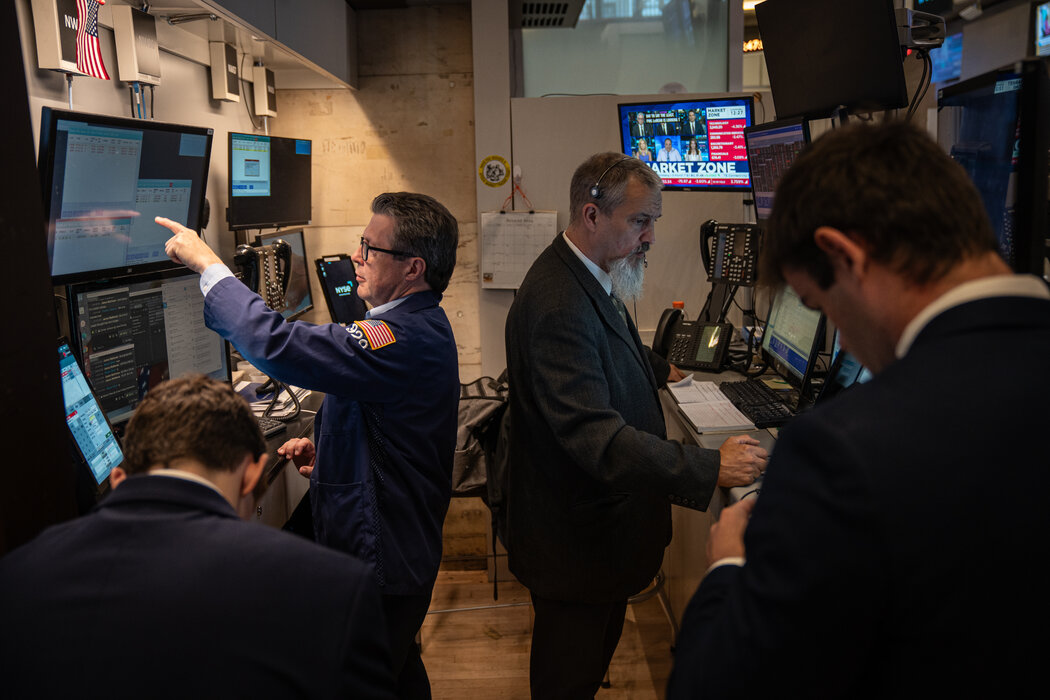
As a barometer of the world economy, the dynamic changes in the global stock market often reflect various factors such as the global economy, politics, society, and market psychology. When the stock market experiences severe fluctuations, it usually means that the market is undergoing significant changes or an increase in uncertainty.
On August 8th local time, according to a report by The New York Times, the recent volatile market is a vivid example of how seemingly disparate pillars around the world are interconnected through the financial system, and the domino effect that may follow if one pillar falls.
The following are some of the reasons behind the violent fluctuations in global stock markets, mainly in three aspects:
The first aspect is macroeconomic uncertainty. Firstly, a slowdown or recession in economic growth: The expected decline or recession in global economic growth will directly affect the profit prospects of enterprises, thereby affecting stock market performance. In addition, investors' pessimistic expectations of economic growth can lead them to reduce their investments and sell stocks, thereby exacerbating stock market volatility. Secondly, inflationary pressures and monetary policy adjustments: High inflation weakens consumers' purchasing power, increases business costs, and puts pressure on the stock market. To cope with inflation, the central bank may adopt tight monetary policies such as interest rate hikes, which will lead to a decrease in market liquidity and further affect stock market trends.
The second aspect is geopolitical risks. International trade tensions such as trade wars and tariff barriers can disrupt global supply chains, increase operational costs for businesses, impact market expectations, and trigger stock market volatility. Secondly, regional political turmoil, war threats, and significant changes in international relations can trigger market panic, leading to capital outflows from high-risk markets and subsequently impacting global stock markets.
The third aspect is internal factors in the financial market. When the stock price rises and forms a foam, the stock price often far exceeds the intrinsic value. Once the market sentiment reverses and the foam bursts, the stock market will experience a sharp decline. Meanwhile, technical factors in the stock market, such as moving average support and resistance levels, as well as changes in market sentiment, can lead to significant fluctuations in the stock market in the short term.
In addition, there are also some impacts of unexpected events, such as natural disasters. Natural disasters such as earthquakes and floods can cause severe economic damage to affected areas, affecting global supply chains and market demand, indirectly triggering stock market fluctuations. For example, global public health events such as the COVID-19 will have a serious impact on economic activities, leading to the shutdown of enterprises and the decline of consumer demand, which will have a major impact on the stock market.
It is worth mentioning that fluctuations in investor sentiment and sudden changes in market expectations also directly affect the stock market. When market sentiment shifts from optimism to pessimism, the stock market often experiences a significant decline. If there is a sudden change in the market's interpretation and expectations of company performance, policy changes, economic data, and other information, it will directly affect the short-term trend of the stock market.
In summary, the severe volatility of global stock markets is the result of multiple factors working together. In order to effectively cope with the risks brought by stock market fluctuations, investors need to closely monitor macroeconomic dynamics, geopolitical changes, internal factors in financial markets, and the impact of unexpected events. Meanwhile, strengthening risk management and formulating reasonable investment strategies are also important means to reduce the impact of stock market fluctuations on investment portfolios.

The United States announced on Monday its commitment to provide 1.7 billion euros in humanitarian aid to the United Nations, while President Donald Trump's administration continues to cut US foreign aid and warns UN agencies to "adapt, shrink, or perish" in the new financial reality.
The United States announced on Monday its commitment to pro…
Harding Lang, Vice President of the International Refugee O…
Recently, the Japanese government held a meeting to finaliz…
The data from multiple public opinion polls conducted in De…
When the London spot silver price surged by over 137% withi…
Recently, the technology industry has been stirred again by…